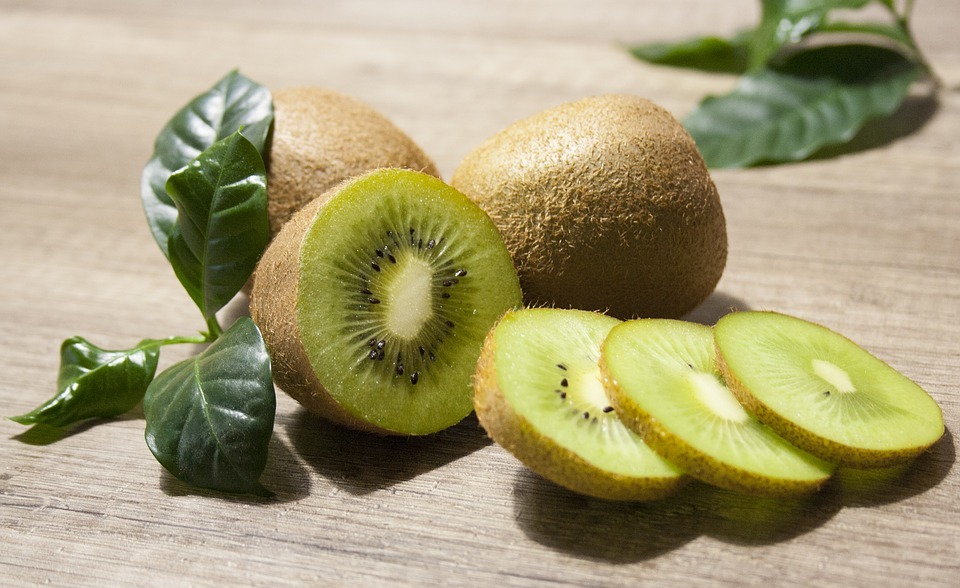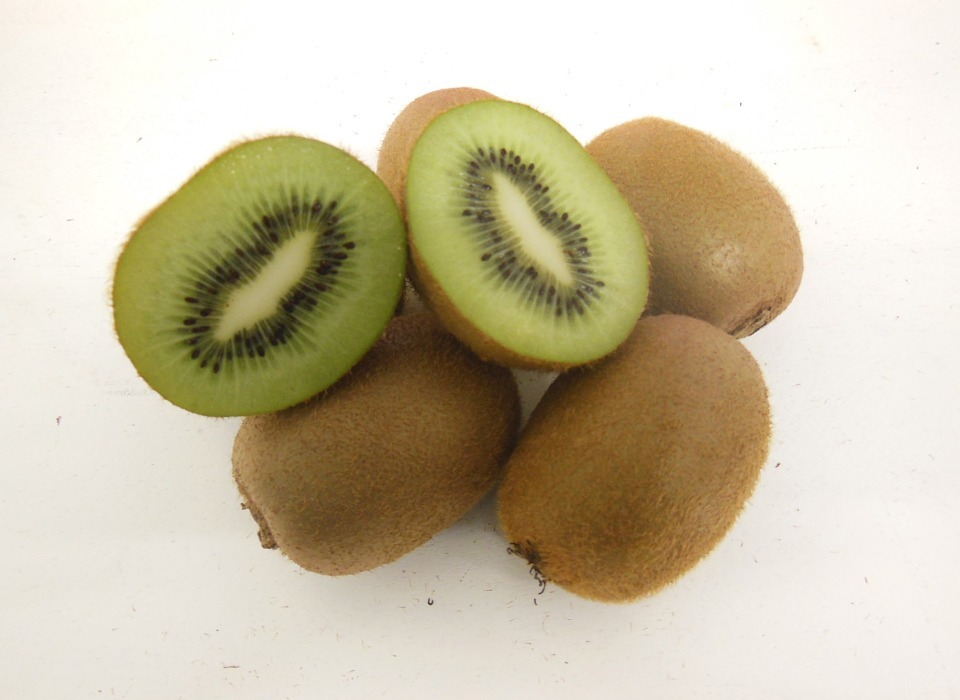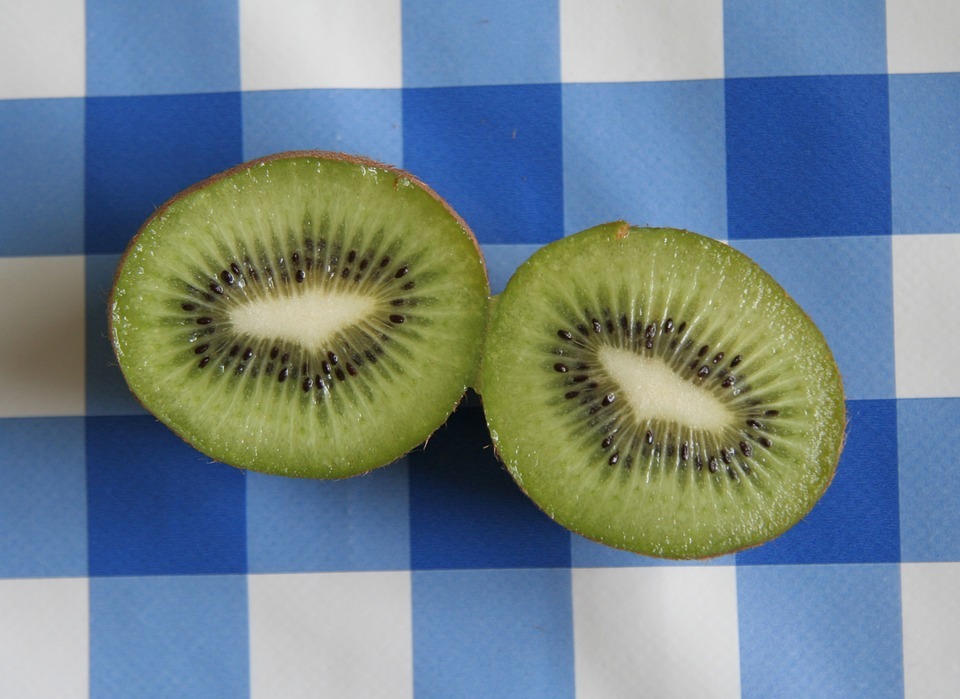This article explores the question of whether dogs can safely eat kiwi, a delicious and nutritious fruit for humans. We'll delve into the nutritional profile of kiwi, examine its potential benefits and risks for dogs, and provide clear guidelines for safe kiwi consumption. We'll also address common questions about kiwi and dog safety, ensuring you have all the information you need to make informed decisions about your furry friend's diet.
Part 1: The Nutritional Value of Kiwi

1.1. A Rich Source of Vitamins and Minerals
Kiwi is a nutritional powerhouse, packed with essential vitamins and minerals. These include:
- Vitamin C: A potent antioxidant that supports immune function and collagen production. A single kiwi provides about 64 mg of Vitamin C, which is more than the daily requirement for most adults.
- Vitamin K: Essential for blood clotting and bone health. Kiwi contains approximately 10 micrograms of Vitamin K per 100 grams, contributing to overall bone health.
- Potassium: Important for maintaining healthy blood pressure and muscle function. Kiwi is a good source of potassium, with about 312 mg per 100 grams, helping regulate fluid balance and muscle contraction.
- Fibre: Promotes digestive health and regularity. Kiwi contains about 3 grams of dietary fibre per 100 grams, aiding digestion and promoting a healthy gut microbiome.
- Folate: Important for cell growth and development. Kiwi provides a moderate amount of folate, contributing to healthy cell function and DNA synthesis.
1.2. Antioxidants and Health Benefits
Kiwi is also rich in antioxidants, which help protect cells from damage caused by free radicals. These antioxidants may contribute to:
- Reduced inflammation: Kiwi's antioxidants can help reduce inflammation throughout the body, potentially lowering the risk of chronic diseases.
- Improved heart health: Studies suggest that kiwi's antioxidants may improve heart health by reducing blood pressure and cholesterol levels.
- Enhanced cognitive function: Some research indicates that kiwi's antioxidants may play a role in improving brain function and cognitive performance.
Part 2: Can Dogs Eat Kiwi? The Verdict

2.1. The General Answer: Moderation is Key
While kiwi offers nutritional benefits, dogs can't enjoy it in the same way humans do. The answer to the question "Can dogs eat kiwi?" is a cautious "yes," but with important caveats. The key to safe kiwi consumption for dogs lies in moderation.
2.2. The Risks of Kiwi for Dogs
Kiwi poses some potential risks for dogs, primarily due to:
- High Fructose Content: Excessive fructose can lead to digestive upset, including diarrhoea and vomiting. Dogs, unlike humans, lack the enzymes to effectively digest fructose, making it more likely to cause gastrointestinal issues.
- Skin Irritation: The fuzzy skin of kiwi can irritate a dog's mouth and digestive tract. The fine hairs on the skin can cause irritation and discomfort, particularly for dogs with sensitive stomachs.
- Seeds: Kiwi seeds are small and hard, potentially causing choking or digestive problems. Dogs may struggle to chew and digest the seeds, leading to potential blockages or irritation.
- Allergic Reactions: While rare, some dogs may have allergies to kiwi, resulting in symptoms like itching, hives, or gastrointestinal upset.
Part 3: Safe Kiwi Consumption for Dogs

3.1. The Golden Rule: Always Consult Your Vet
Before introducing any new foods, including kiwi, to your dog's diet, it's crucial to consult with your veterinarian. They can provide personalised advice based on your dog's age, breed, health condition, and other factors. Your vet can also advise on the appropriate serving size and frequency of kiwi treats.
3.2. Kiwi Serving Size for Dogs
If your vet approves, a small amount of kiwi can be offered as an occasional treat. A safe serving size for a small dog might be a single slice or a few bites, while a larger dog may tolerate a larger portion. However, it's crucial to start with a small amount and observe your dog for any signs of intolerance.
3.3. Preparation is Key
To minimize risks, follow these preparation guidelines:
- Remove the Skin: Peel the kiwi thoroughly to avoid any skin irritation. Use a sharp knife to remove the skin completely, discarding it to prevent your dog from ingesting it.
- Remove the Seeds: Carefully remove all seeds to prevent choking hazards. Use a spoon or your fingers to remove the seeds, ensuring none are left behind.
- Slice or Dice: Cut the kiwi into small, bite-sized pieces to make it easier for your dog to consume. This will also help prevent choking and ensure proper digestion.
3.4. Introducing Kiwi Gradually
When first introducing kiwi to your dog, it's best to start with a small amount and observe for any signs of intolerance. If your dog doesn't seem to have any issues, you can gradually increase the amount over time. It's important to monitor your dog's reaction and adjust accordingly.
Part 4: Signs of Kiwi Toxicity in Dogs
While kiwi is generally safe in moderation, it's essential to be aware of potential signs of toxicity. These may include:
- Diarrhoea: Excessive kiwi consumption can lead to diarrhoea due to its high fructose content and potential for digestive upset.
- Vomiting: If your dog ingests too much kiwi, it could trigger vomiting due to the fruit's high acidity and potential for intestinal irritation.
- Abdominal pain: If your dog experiences digestive upset, they may exhibit signs of abdominal pain, including whimpering, restlessness, or guarding their stomach.
- Loss of appetite: Intestinal discomfort from kiwi can lead to a decrease in appetite and potentially a lack of interest in food.
- Lethargy: If your dog experiences severe digestive upset or is reacting to an allergy, they might become lethargic and less active.
- Skin irritation: Some dogs may experience skin irritation around their mouth or paws if they come into contact with kiwi skin.
If you notice any of these symptoms after your dog has eaten kiwi, contact your veterinarian immediately.
Part 5: Alternatives to Kiwi for Dogs
While kiwi can be a treat in moderation, there are many other healthy and safe alternatives for your canine companion. These include:
- Apples (without seeds): Apples are a good source of fibre and vitamin C, but always remove the seeds before feeding to your dog.
- Bananas: Bananas are a good source of potassium and fibre, and many dogs enjoy their sweet taste.
- Blueberries: Blueberries are packed with antioxidants and can be a healthy and delicious treat for dogs.
- Carrots: Carrots are a good source of vitamin A and fibre, and are safe and enjoyable for most dogs.
- Cucumber: Cucumber is low in calories and a good source of hydration, making it a refreshing treat for dogs.
- Green beans: Green beans are a good source of fibre and vitamins, and can be a healthy addition to your dog's diet.
- Mango (in moderation): Mangoes can be a delicious treat, but it's important to give them in moderation due to their sugar content.
- Peaches (without pits): Peaches are a good source of vitamin C and fibre, but always remove the pit before feeding to your dog.
- Strawberries: Strawberries are a good source of vitamin C and antioxidants, and many dogs enjoy their sweet taste.
Part 6: FAQs: Kiwi and Dogs
6.1. What Happens if My Dog Eats a Whole Kiwi?
While a whole kiwi is unlikely to cause serious harm, it's best to monitor your dog for any signs of digestive upset. If you notice any concerning symptoms, contact your vet. A whole kiwi could potentially lead to diarrhoea, vomiting, or abdominal pain due to the high fructose content and potential for intestinal irritation.
6.2. Is Kiwi Juice Safe for Dogs?
Kiwi juice is generally not recommended for dogs. It can be high in sugar and could lead to digestive problems. Kiwi juice is also often concentrated, meaning the fructose levels are even higher than in fresh kiwi, increasing the risk of digestive upset.
6.3. Can Dogs Eat Kiwi Skin?
No, kiwi skin is not safe for dogs. The fuzzy texture can irritate their mouth and digestive system. The fine hairs on the skin can cause irritation and discomfort, potentially leading to digestive upset or allergic reactions in some dogs.
6.4. Can Puppies Eat Kiwi?
Puppies have more sensitive stomachs, making them more susceptible to digestive upset. It's best to avoid kiwi for puppies, especially under six months old. Puppies are still developing their digestive systems and may have difficulty digesting kiwi, potentially leading to more severe digestive issues.
6.5. Can Dogs Eat Kiwi Fruit with the Seeds?
No, it's best to remove the seeds from kiwi before giving it to your dog. The seeds are hard and can pose a choking hazard or cause digestive problems. Dogs may struggle to chew and digest the seeds, potentially leading to blockages or irritation.
6.6. Is Dried Kiwi Safe for Dogs?
Dried kiwi is even more concentrated in sugar than fresh kiwi and should be avoided. Dried kiwi has a higher concentration of fructose and other sugars, making it even more likely to cause digestive upset in dogs.
6.7. Can I Give My Dog Kiwi Every Day?
It is generally not recommended to give your dog kiwi every day. It's best to offer it as an occasional treat to avoid potential digestive upset and maintain a balanced diet.
Part 7: Conclusion: Kiwi and Your Dog's Diet
In conclusion, while kiwi can offer some nutritional benefits for dogs, it's important to approach it with caution. Moderation, careful preparation, and veterinary consultation are essential to ensure your furry friend's safety. Remember, a balanced and complete dog food diet provides all the necessary nutrients, and treats should be given only in moderation. A healthy diet and regular exercise are vital for your dog's overall health and well-being. Always prioritize your dog's health and safety by consulting with your vet before introducing any new foods to their diet.
Everyone is watching
-

Can Dogs Eat Bananas? A Guide to Safe Treats
DOGS & PUPPIESThis comprehensive guide will delve into the world of canine nutrition, focusing on the popular question: can ...
-

Can Dogs Eat Oranges? (Is It Safe or Toxic?)
DOGS & PUPPIESThis article delves into the question of whether dogs can safely consume oranges. We'll explore the nutrition...
-

Can Dogs Eat Grapes? The Shocking Truth About This Fruit
DOGS & PUPPIESThis article delves into the controversial topic of grapes and dogs, exploring the potential dangers associate...
-

Why Do Dogs Eat Poop? Understanding Coprophagia in Dogs
DOGS & PUPPIESThis article delves into the perplexing phenomenon of coprophagia, the act of eating faeces, in dogs. We explo...
-

Can Dogs Eat Shrimp? A Guide to Safety and Risks
DOGS & PUPPIESThis comprehensive guide dives into the world of shrimp and dogs, exploring the potential benefits and risks a...
